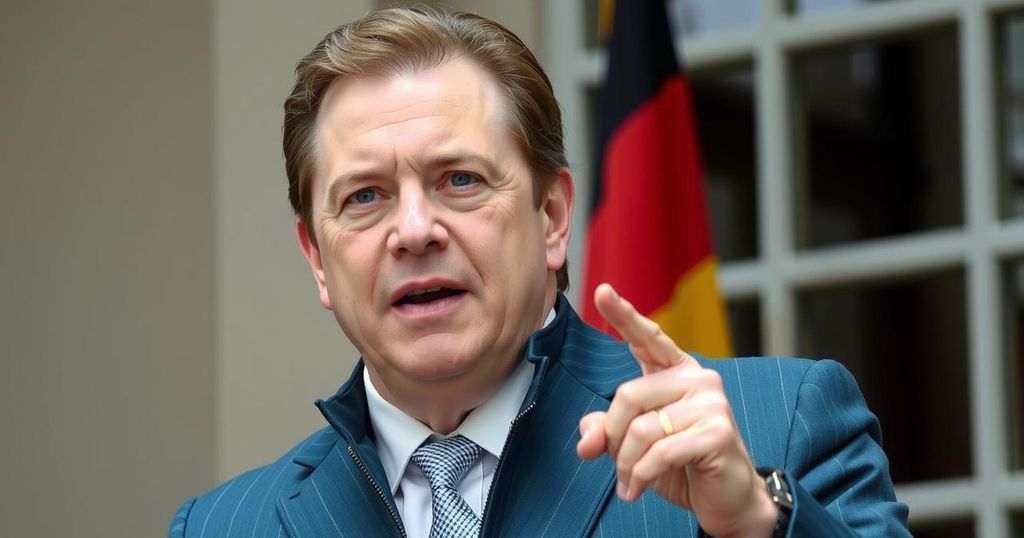German Government Responds to Elon Musk’s Endorsement of AfD Party
The German government has criticized Elon Musk’s support for the far-right AfD party, emphasizing his influence on the upcoming elections. His recent opinion piece sparked backlash, leading to the resignation of a newspaper editor. Musk argues that the AfD can lead Germany to prosperity, while government officials indicate potential alignment with extremist ideologies.
The German government has attempted to minimize Elon Musk’s influence in the country’s general election campaign, following his endorsement of the far-right party, Alternative for Germany (AfD). Musk’s support for the party, articulated in a recent opinion piece, has led to significant backlash, including the resignation of the opinion editor of the publication where his article appeared. Government spokesperson Christiane Hoffmann remarked on Musk’s statements, highlighting their potential impact on the upcoming federal election. She noted the AfD’s designation as a monitored entity due to suspected right-wing extremism by Germany’s intelligence service and emphasized that Musk’s attempts to sway public opinion should not be overlooked.
In the context of the impending early elections in Germany on February 23, the backdrop includes the recent collapse of Chancellor Olaf Scholz’s coalition government, which had been struggling to address economic stagnation. Musk’s commentary in “Welt am Sonntag,” where he called the AfD a beacon of hope for Germany, raises concerns among political analysts regarding foreign intervention in domestic politics. His assertion that the AfD could successfully guide Germany towards prosperity and integrity sparked further controversy amid ongoing tensions about party representation.
Musk’s previous comments have reinforced debates around free speech’s limitations, precipitating a wave of resignations and public outrage. Acknowledging the criticism, the newly appointed editor-in-chief of the “Welt” group articulated a dissenting view on Musk’s conclusions, indicating that while acknowledging some insights into Germany’s challenges, it is fundamentally misguided to assert that only the AfD possesses the solutions. As Germany approaches an essential election, the implications of Musk’s remarks resonate within the sphere of political discourse and the role of influential figures in shaping public opinion.
The article discusses a significant political controversy in Germany involving tech entrepreneur Elon Musk, who has publicly expressed support for the far-right political party, Alternative for Germany (AfD). This endorsement comes in the lead-up to pivotal general elections, following the collapse of the current coalition government. The AfD is under scrutiny for its extremist elements, drawing attention to the potential ramifications of external influence on national elections and the ongoing debate regarding free speech boundaries in political commentary.
Elon Musk’s endorsement of the AfD has reignited discussions about the influence of foreign figures in domestic politics, particularly as Germany prepares for an upcoming election. While Musk regards the AfD as a hopeful force, the government’s response illustrates a commitment to mitigating extremist rhetoric and protecting the electoral process from external pressures. The incident raises critical questions about free expression and the ethical responsibilities of influential individuals in political discourse.
Original Source: www.voanews.com




Post Comment